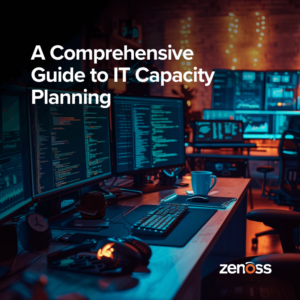
Future of the cloud is hybrid > by Trevor Pott
"Yesterday’s private cloud technologies helped to make the operating system less of a barrier to servicer delivery. Today’s public cloud offerings enable systems administrators at companies of all sizes to work around the data centre’s hardware limitations. Tomorrow's hybrid offerings will change..."
Memo to I.T.: Don’t fight the public cloud; embrace it > by Kevin C. Tofel
"When it comes to cloud computing, corporate I.T. doesn’t quite 'get it' just yet...the cloud adoption process is one of a 'creative model of destruction,' because the corporate cloud should be adopting automation for efficiency."
Amazon’s “state of the cloud” — it isn’t stacking up > by Courtney Fielding
"When it comes to the cloud, just forget about the stack. Cloud computing is evolving beyond the data structure of interchangeable layers, said Werner Vogels, Chief Technology Officer and Vice President at Amazon, during his “state of the cloud” address at GigaOm’s Structure conference."
Is SaaS the key to cloud revenues? > by Derrek Harris
"Cloud services will be a $72.9 billion market by 2015, predicts IDC, driven almost entirely by companies delivering software as a service. This suggests — likely accurately — that SaaS is the key to bridging the gap from cloud computing promise to cloud computing ubiquity."
12 Things You Need to Know About Application Performance Management in the Cloud > by BSM Digest
"BSMdigest asked a variety of experts across the industry: What is the one piece of advice you would give someone about application performance management in the cloud? Here are their answers..."
Cloud's on the horizon, but are we ready for a world without software? > by Dan Pearce
"GOOGLE has launched the Chromebook! The world of cloud computing beckons and you need never worry about software again. It's very exciting, but should you trade in your laptop tomorrow? As Mark Twain noted regarding his own passing: the laptop's not dead yet."
Indiana University's 'Personal Clouds' Address Massive Virtualization Challenges > by Charles Babcock
"Virtualization of end users en masse, a problem that has resisted solution in many places, is being accomplished at Indiana University with a two-pronged approach. The eight-campus system expects to see 100,000 end users converted to virtualized applications by fall 2012."
Cloud computing requires new thinking on privacy > by Ryan Kim
"The move to the cloud has broad implications on privacy and requires a lot of discussion on the boundaries and expectations for data in a cloud environment. The government’s approach to data privacy, in particular, is of great concern, from the legislation it enacts to the way law enforcement uses it..."
Enterprise 2.0 Is Growing Up > by Russ Garland
"Big vendors continue to swoop into the Enterprise 2.0 space, but there is no clear leader in the market, said Steve Wylie, general manager of the conference. Nor is there a one-size-fits-all approach to implementing the technology within the enterprise, he said."
Private Clouds: Debunking the myths that can slow adoption > by Dana Gardner
"The popularity of cloud concepts and the expected benefits from cloud computing have certainly raised expectations. Forrester now predicts that cloud spending will grow from $40 billion to $241 billion in the global IT market over the next 10 years, and yet, there’s still a lot of confusion about the true payoffs and risks associated with cloud adoption."
And a few more honorable mentions from the b-roll…
Cisco launches its own industry news site - "The Network" > by Rich Harris
BBC's data dilemma > by Loek Essers
McDonald's Moves Application Development to the Cloud > by CIO Insight
AMD 2011 Global Cloud Computing Adoption, Attitudes and Approaches Study [Infographic] > by AMD
Rebuilding IT post-recession: Hire for the future, not the past > by Michael Kirven







